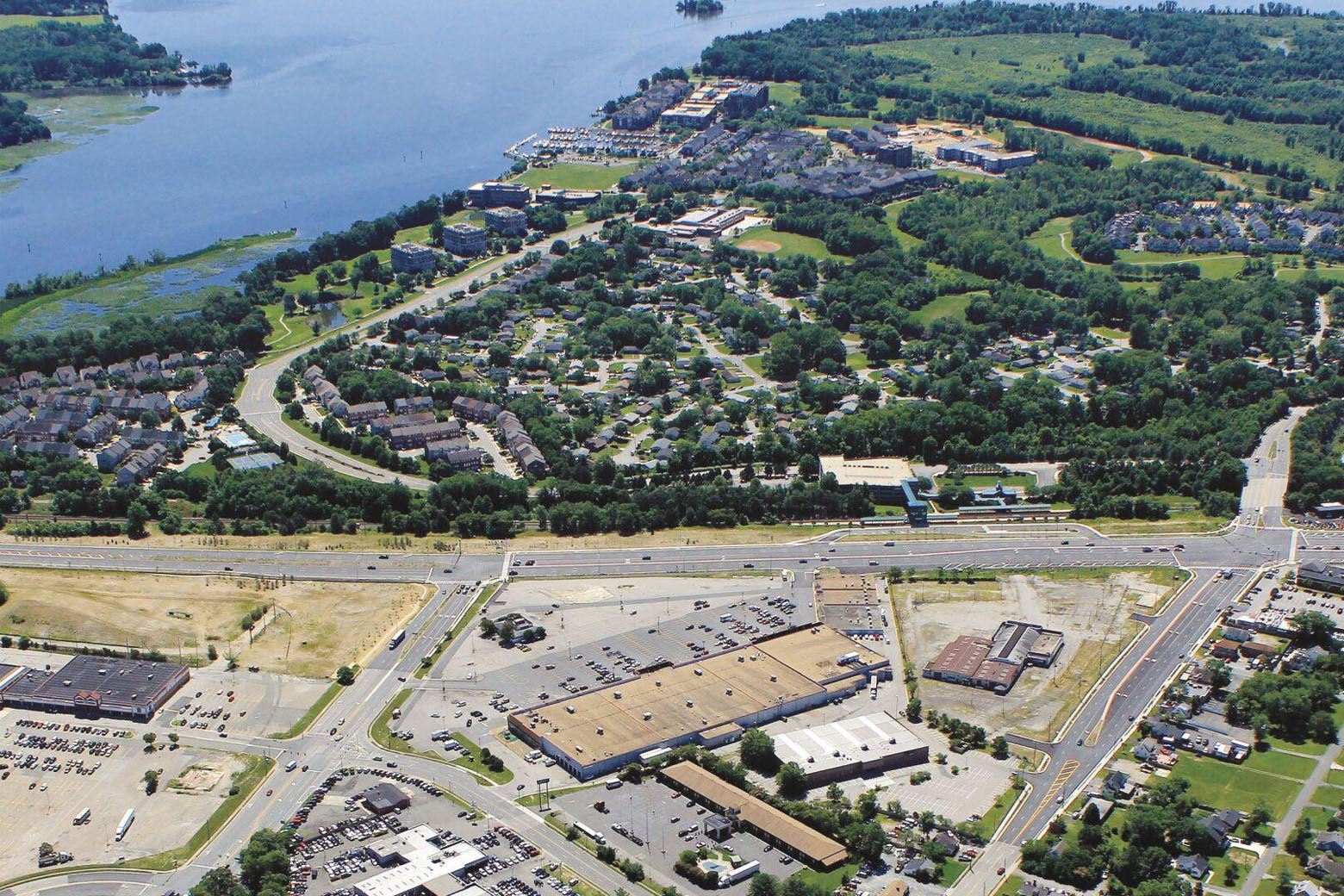

This article was written by WTOP’s news partner InsideNoVa.com and republished with permission. Sign up for InsideNoVa.com’s free email subscription today.
Major changes are in the works for the North Woodbridge area, and Prince William County is hustling to get ready.
Further details are anticipated this year for multiple big-ticket area developments, with even more residential projects expected to come before the county’s planning department in the near future. At the same time, county planners are hoping to turn the vision for Prince William’s first true mixed-use hub into a reality through a slew of infrastructure projects.
Woodbridge District Supervisor Margaret Franklin said developer IDI Group is close to submitting formal plans to the Planning Commission for its $380 million North Woodbridge Town Center, a centerpiece of the county’s effort to draw more walkable mixed-use development into the Woodbridge area that culminated in the adoption of the North Woodbridge small-area plan in 2019. In December, the developer announced its plan to build 160,000 square feet of commercial space for stores and restaurants, as well as 850 apartment units, just northwest of the Route 1-Occoquan Road intersection.
On the other side of Route 1, meanwhile, developer Caruthers Cos. submitted an application earlier this month for the remaining undeveloped 170 acres of its Belmont Bay development, the first such application submitted under the new small-area plan.
Franklin told InsideNoVa she also expects other open lots along Route 1 to see new mixed-use developments, some of which would include affordable housing. She declined to go into detail about potential projects.
“We’re hoping to bring some of those other dead spots along the Route 1 corridor to where we can do some mixed-use as well,” she said. “A lot of those are going to come before the planning department for consideration. I’m hoping we can get the community’s support for that because a lot of it is going to include some affordable housing, which … we’ve just never done in the county before.”
At the same time, the county and the Virginia Department of Transportation are working toward what they say will be needed infrastructure improvements for the area’s continued growth.
VDOT finished its $165-million widening of Route 1 between Marys Way and Annapolis Way last year, and county transportation planner Paolo Belita said the county’s widening of Route 1 from a four-lane undivided highway to a six-lane divided highway with a trail and sidewalk is expected to be done next summer.
VDOT is also conducting three different studies and will ultimately make recommendations for three different infrastructure improvements along Route 123. In particular, the county has been adamant about a study of the Route 1/Route 123 intersection, saying it hopes VDOT comes back with a recommendation for the intersection changes to be less invasive than what was previously proposed by the transportation department.
In March, Belita told InsideNoVa that it was crucial that the interchange not disrupt the walkability and transit-accessibility that the county is trying to achieve with the town center, despite the Route 1 widening projects..
“We didn’t think the old design was supportive of the density and the transit-oriented development that we wanted to have happen in North Woodbridge, he said. “The reason we’re looking for an alternative concept is to really reduce that footprint … and come up with a design that supports multimodal use, bike-ped use and land-use.”
Pedestrian bridge over Route 1
Separately, the county is seeking funding for a pedestrian bridge that would connect the town center to the Woodbridge VRE station over Route 1.
In June, the Board of County Supervisors approved the application to the National Capital Region Transportation Planning Board through its Transit Within Reach program, which funds projects that enhance pedestrian and bike access to transit stops. The bridge, the county says, would increase ridership at the station “by providing a first/last mile transit solution for over 7,000 residents and employees within the one-mile walkshed of the project location.”
The bridge was listed as a priority in the 2019 small-area plan, and Belita said it’s part of the county’s work to address the varying needs that will arise with the new density brought by the town center and other developments.
“We’re trying to identify funding for some of the projects that are mentioned in the small-area plan … that is one of the most multimodal areas in the county. You have VRE, you have a commuter lot … and you have [Interstate] 95,” Belita said.
Franklin says that the planning for added density in the corridor isn’t about drawing increased mass transit to the area in the form of bus rapid transit or Metro, which a Virginia Department of Rail and Public Transportation study is exploring. She says the area already has the population density to support something like Metro, “even if the powers-to-be disagree.”
More importantly, she says she’s interested in preserving the area’s affordability through mixed-use, mixed-income housing options.
“We’re also doing additional housing simply because, in order to do affordable housing, you gotta build more housing,” Franklin added. “So to me it’s less about additional transportation options and more about just revitalizing the corridor. … We’re revitalizing the corridor because it needs to be revitalized.”
This post was originally published on this site


